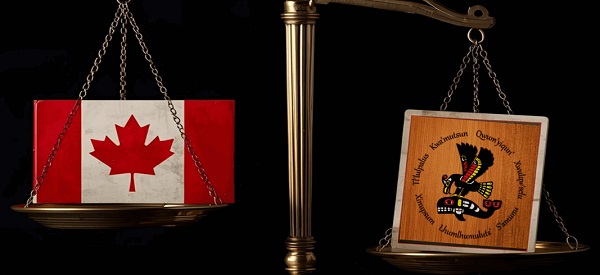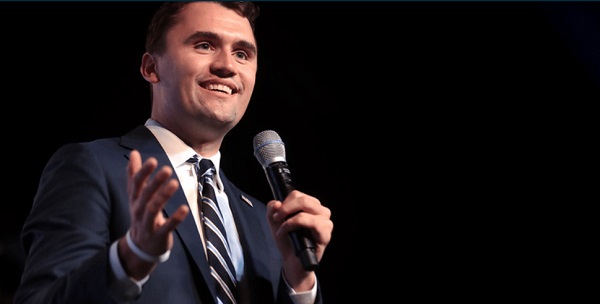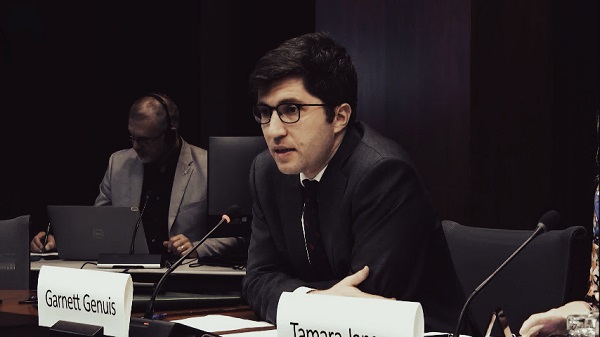C2C Journal
“Freedom of Expression Should Win Every Time”: In Conversation with Freedom Convoy Trial Lawyer Lawrence Greenspon

Lawrence Greenspon Defends the Fundamental Freedoms of All Canadians
By Lynne Cohen
“Law is an imperfect profession,” famed American lawyer Alan Dershowitz – defender of such notorious clients as Claus Von Bülow, Jeffrey Epstein, Harvey Weinstein and O.J. Simpson – once wrote. “There is no perfect justice…But there is perfect injustice, and we know it when we see it.”
Like Dershowitz, Lawrence Greenspon has spent a career fighting injustice in all its forms. Over the past 45 years Greenspon has become one of Canada’s best-known criminal lawyers through his defence of a long list of clients at risk of being crushed by Canada’s legal system – from terrorists to political pariahs to, most recently, Tamara Lich, the petite grandmother who became the public face of the 2022 Freedom Convoy protest.
In taking on these cases, Greenspon is not only giving his clients the best defence possible, he’s also defending the very legitimacy of Canada’s legal system.
Lich faced six charges and up to 10 years in jail for her role organizing the peaceful Ottawa protest. Earlier this month she was found guilty on a single charge of mischief. The Crown says it intends to seek a two-year sentence for that one charge.
In an interview, Greenspon said he decides on cases based on whether he believes in the cause central to the case: “What’s at stake. And can I make a difference?” What attracted him to Lich’s case were key aspects of the Charter of Rights and Freedoms that Greenspon felt needed defending. “Canadians have a constitutionally protected right to freedom of expression and freedom of peaceful assembly,” he said. “These are fundamental freedoms, and they’re supposed to be protected for all of us.”
At issue was the impact the protest had on some downtown Ottawa residents and whether that conflicted with Lich’s right to free speech and peaceful protest. “We were prepared to admit right off the bat that there were individuals who lived in downtown Ottawa who experienced some interference with their enjoyment of their property,” Greenspon noted.
“But when you put freedom of expression and freedom of peaceful assembly on a scale against interference with somebody’s enjoyment of property, there’s no contest. Freedom of association and peaceful assembly, and freedom of expression – these should win every time.”
Such a spirited defence of Canadians’ Charter rights is characteristic of the entire body of Greenspon’s legal work. Although his clients aren’t always as endearing as Lich.
Prior to being in the spotlight for the Lich trial, most Canadians probably remember Greenspon from the 2008 trial of Mohamed Momin Khawaja, the first person charged under Canada’s Anti-Terrorism Act. The evidence against Khawaja was substantial and convincing. He was even planning a suicide mission against Israel. Greenspon is a Jew. It was not an issue.
“The fundamental point is that everybody’s entitled to a defence,” Greenspon said. What really mattered was the constitutionality of the new terror law, which Greenspon argued impinged on the free speech rights of Canadians.
In 2018 Greenspon represented Joshua Boyle, who faced over a dozen criminal charges stemming from accusations made by his wife Caitlin Coleman after they returned from being held captive in Afghanistan. Greenspon’s meticulous cross-examination of Coleman led Judge Peter Doody of the Ontario Superior Court of Justice to conclude, “I do not believe her, just as I do not believe Mr. Boyle.” All charges against Boyle were dismissed.
He also defended Senator Mike Duffy, who in 2014 found himself charged in connection with an expense account scandal. “Duffy’s presumption of innocence had been completely annihilated. I had no problem representing Mike. In fact, I feel proud to have represented Mike,” he said.
Throughout his legal career, Greenspon has fought tirelessly for the constitutional rights of all his clients, regardless of public sympathy or apparent guilt. While such a stance can make him unpopular, such work offers a crucial bulwark against the state’s misuse of its authority in pursuing particular individuals, as well as the gradual erosion of the liberties promised to all Canadians by the Charter of Rights and Freedoms.
Every Canadian has a stake in ensuring the court system is held to account at all times, regardless of the apparent evidence, current political mood or public support.
Without the work of lawyers such as Greenspon, Charter rights can soon deteriorate into empty platitudes – as the federal government’s shocking treatment of the peaceful Freedom Convoy protesters revealed. That included the unjustified imposition of the Emergencies Act, the freezing of donors’ bank accounts, the mass arrest of supporters and the marked reluctance to grant bail to those charged.
As Greenspon pointed out numerous times during the trial, the conciliatory and always respectful Lich represents the very ideals of peaceful protest in Canada. And for the sole charge on which she was convicted, she still faces two years in a federal penitentiary.
In the case of Khawaja, Greenspon was asked by an Ottawa synagogue to explain why he, as a Jew, was defending an Islamist terrorist. “I told the synagogue members, somebody has to stand up for the person who finds themselves set against the entire machinery of the state. In this case it happens to be Khawaja. But what if the next guy is named Dreyfus?”
Lynne Cohen is a writer at C2C Journal, where the longer original version of this story first appeared.
Business
Judges are Remaking Constitutional Law, Not Applying it – and Canadians’ Property Rights are Part of the Collateral Damage

By Peter Best
The worst thing that can happen to a property owner isn’t a flood or a leaky foundation. It’s learning that you don’t own your property – that an Aboriginal band does. This summer’s Cowichan Tribes v. Canada decision presented property owners in Richmond B.C. with exactly that horrible reality, awarding Aboriginal
title to numerous properties, private and governmental, situated within a large portion of Richmond’s Fraser River riverfront area, to Vancouver Island’s
Cowichan Tribes. For more than 150 years, these properties had been owned privately or by the government. The Cowichan Tribes had never permanently lived
there.
But B.C. Supreme Court Justice Barbara Young ruled that because the lands had never been formally surrendered by the Cowichans to the Crown by treaty, (there
were no land-surrender treaties for most of B.C.), the first Crown grants to the first settlers were in effect null and void and thus all subsequent transfers down
the chain of title to the present owners were defective and invalid.
The court ordered negotiations to “reconcile” Cowichan Aboriginal title with the interests of the current owners and governments. The estimated value of the
property and government infrastructure at stake is $100 billion.
This ruling, together with previous Supreme Court of Canada rulings in favour of the concept of Aboriginal title, vapourizes more than 150 years of legitimate
ownership and more broadly, threatens every land title in most of the rest of B.C. and in any other area in Canada not subject to a clear Aboriginal land surrender
treaty.
Behind this decision lies a revolution – one being waged not in the streets but in the courts.
In recent years Canadian judges, inspired and led by the Supreme Court of Canada, have become increasingly activist in favour of Aboriginal rights, in effect
unilaterally amending our constitutional order, without public or legislative input, to invent the “consult and accommodate” obligation, decree Aboriginal title and grant Canadian Aboriginal rights to American Indians. No consideration of the separation of powers doctrine or the national interest has ever been evidenced by
the Court in this regard.
Following the Supreme Court’s lead, Canadian judges have increasingly embraced the rhetoric of Aboriginal activism over restrained, neutral language, thus
sacrificing their need to appear to be impartial at all times.
In the Cowichan case the judge refused to use the constitutional and statutory term “Indian,” calling it harmful, thereby substituting her discretion for that of our
legislatures. She thanked Aboriginal witnesses with the word “Huychq’u”, which she omitted to translate for the benefit of others reading her decision. She didn’t
thank any Crown witnesses.
What seems like courtesy in in fact part of a larger pattern: judges in Aboriginal rights cases appearing to adopt the idiom, symbolism and worldview of the
Aboriginal litigant. From eagle staffs in the courtroom, to required participation in sweat lodge ceremonies, as in the Supreme Court-approved Restoule decision,
Canada’s justice system has drifted from impartial adjudication toward the appearance of ritualized, Aboriginal-cause solidarity.
The pivot began with the Supreme Court’s 1997 Delgamuukw v. British Columbia decision, which first accepted Aboriginal “oral tradition” hearsay evidence. Chief
Justice Lamer candidly asked in effect, “How can Aboriginals otherwise prove their case?” And with that question centuries of evidentiary safeguards intended
to ensure reliability vanished.
In Cowichan Justice Young acknowledged that oral tradition hearsay can be “subjective” and is often “not focused on establishing objective truth”, yet she
based much of her ruling on precisely such “evidence”.
The result: inherently unreliable hearsay elevated to gospel, speculation hardened into Aboriginal title, catastrophe caused to Richmond private and government property owners, the entire land titles systems of Canadian non-treaty areas undermined, and Crown sovereignty, the fount and source of all real property rights generally, further undermined.
Peter Best is a retired lawyer living in Sudbury, Ontario.
The original, full-length version of this article was recently published in C2C Journal.
C2C Journal
Charlie Kirk and the Fragility of Civic Peace

The brutal assassination of Charlie Kirk was shocking not only for its violence but for the chilling aftermath – the revelling on the left, the mendacious reporting, and the calls for more political violence.
Kirk embodied a conversational politics now rare. As founder of Turning Point USA, he brought millions of young people to conservatism by touring campuses and inviting critics – not just supporters – to the microphone. He strode into the lion’s den of higher education, taking hostile questions with civility, good humour, and reasoned argument rather than rancour.
“Disagreement,” he liked to say, “is a healthy part of our systems.”
It wasn’t necessary to share his convictions to recognize his courage and composure.
The reaction to Kirk’s death on September 10 at Utah Valley University was particularly disturbing. News outlets and social media overflowed with callous gloating and demands for further violence. “He got what he deserved” was among the milder responses. A conservative group logged more than 50,000 such comments in four days. Democratic members booed a motion for silence in Congress. A Secret Service agent called Kirk’s death “karma.”
How did it become virtuous to cheer a fellow human being’s death? Part of the answer lies in what literary critic George Steiner called the passing of the tragic vision. In The Death of Tragedy (1961), Steiner argued that tragedy – once the highest expression of human dignity amid suffering – had perished in Western culture, and its loss was civilizational.
The tragic view holds that suffering is an inherent part of the human condition. Chance, flaw, and necessity are woven into our very existence. This recognition distinguishes the tragic sensibility from utopian schemes of collective redemption. Enlightenment rationalism envisioned the world as scientifically perfectible; Marxism reinterpreted conflict as a class struggle culminating in utopia; the managerial state promised that expertise would eliminate disorder.
But when we forget life’s limits, politics ceases to be the art of prudence and compromise and becomes a fever dream of utopia. Once utopia is the aim, violence is reimagined as a form of purification. The French Revolution’s Terror, Stalin’s gulags, Mao’s Cultural Revolution, Pol Pot’s killing fields – each arose from rejecting Kant’s warning: “Out of the crooked timber of humanity, no straight thing was ever built.”
Tragic sensibility is not fatalism. It tempers ambition with humility, recognizing that motives are mixed, victories partial, and knowledge flawed – and that opponents share our frailties. To acknowledge this crookedness is clarity, not despair. Only those who accept tragic limits can build anything lasting.
Politics lacking tragic sensibility becomes a substitute religion, promising salvation through power. Opponents become enemies; compromise becomes betrayal; violence follows. Those convinced of their righteousness feel justified in demonizing others. This tendency is especially apparent on today’s left; its ‘virtuous’ rhetoric of compassion often masks self-righteousness – and self-righteousness without humility can be deadly.
Consider Kirk’s accused assassin, 22-year-old Tyler Robinson. Raised in a stable, conservative family, Robinson drifted leftward and was recently radicalized, seemingly influenced by his transitioning roommate. He referred to himself as a leftist who loathed Trump. One can envision him then, cloaked in righteousness, believing he struck a blow against evil. The opponent becomes not a fellow human being but a symbol of oppression. Murder is no longer malice but moral necessity – the cost of purity. As Robespierre said, “Terror is nothing other than prompt, severe, inflexible justice; it is therefore an emanation of virtue.”
Canadians often imagine themselves immune to such eruptions. Yet our history tells another story: the October Crisis, the Air India bombing… seventy churches burned after unproven residential-school claims, and on-going anti-Jewish protests. Violence disguised as virtue is not alien to our soul.
Canadian academics exhibited hatred comparable to Kirk’s worst American foes. “Shooting is honestly too good for so many of you fascist c—-,” posted University of Toronto professor Ruth Marshall hours after Kirk’s death. Toronto schoolchildren reportedly cheered the news, while teachers watched passively.
This moment is perilously fragile. Social media amplifies outrage, rewarding anger while penalizing restraint. Every disagreement becomes an “existential crisis.” Every opponent is Hitler. The language of “emergency” and “genocide” floods politics, quickening the slide from rhetoric into violence.
The antidote is not repression but the recovery of tragic wisdom: we must temper politics with humility. This requires cultural renewal and virtues that allow citizens to live with differences: prudence, courage, humility, and charity. We need a civic ethos that balances rights with responsibilities, diversity with shared norms. Without restraint, pluralism degenerates into tribalism.
As Solzhenitsyn wrote in The Gulag Archipelago: “the line dividing good and evil cuts through the heart of every human being.” This understanding counters ideologies dividing the world into pure and impure, oppressor and oppressed. The battle is within each heart – and that recognition demands humility.
Kirk’s assassination serves as a grim warning. The decline of civic peace is never accidental; it springs from ideological fanaticism, the conviction that one’s cause is so virtuous that opponents must be demonized and destroyed. Every destructive ideology cloaks itself in righteousness even as it paves the road to cruelty.
Charlie Kirk’s death exposes the danger of politics detached from a tragic sensibility. We must foster a politics tempered with humility, recognizing that our victories are partial and our understanding imperfect. Without this humble wisdom, freedom itself cannot survive.
The original, full-length version of this article was recently published in C2C Journal.
Patrick Keeney is a Canadian writer who divides his time between Kelowna, B.C., and Thailand.
-

 Automotive1 day ago
Automotive1 day agoParliament Forces Liberals to Release Stellantis Contracts After $15-Billion Gamble Blows Up In Taxpayer Faces
-

 National1 day ago
National1 day agoPolitically Connected Canadian Weed Sellers Push Back in B.C. Court, Seek Distance from Convicted Heroin Trafficker
-

 Alberta1 day ago
Alberta1 day agoPetition threatens independent school funding in Alberta
-

 Courageous Discourse1 day ago
Courageous Discourse1 day agoNo Exit Wound – EITHER there was a very public “miracle” OR Charlie Kirk’s murder is not as it appears
-

 MAiD23 hours ago
MAiD23 hours agoDisabled Canadians increasingly under pressure to opt for euthanasia during routine doctor visits
-

 Business1 day ago
Business1 day agoCanada has fewer doctors, hospital beds, MRI machines—and longer wait times—than most other countries with universal health care
-

 Business2 days ago
Business2 days agoQuebecers want feds to focus on illegal gun smuggling not gun confiscation
-

 Censorship Industrial Complex1 day ago
Censorship Industrial Complex1 day agoWho tries to silence free speech? Apparently who ever is in power.


